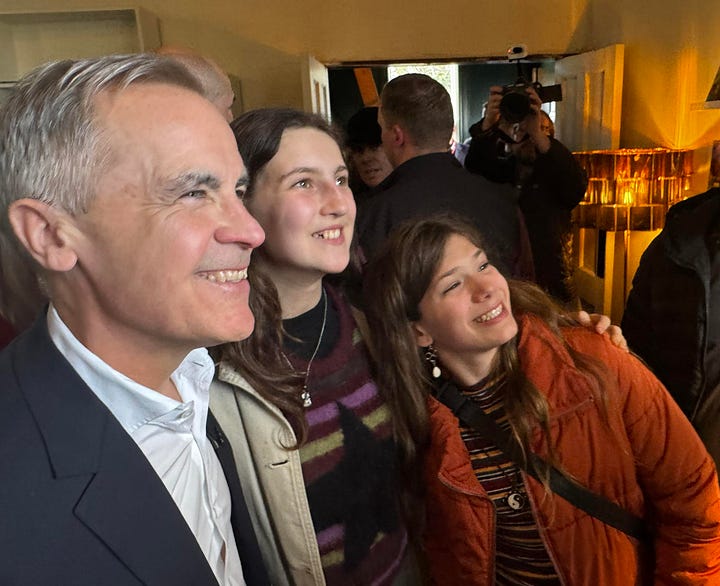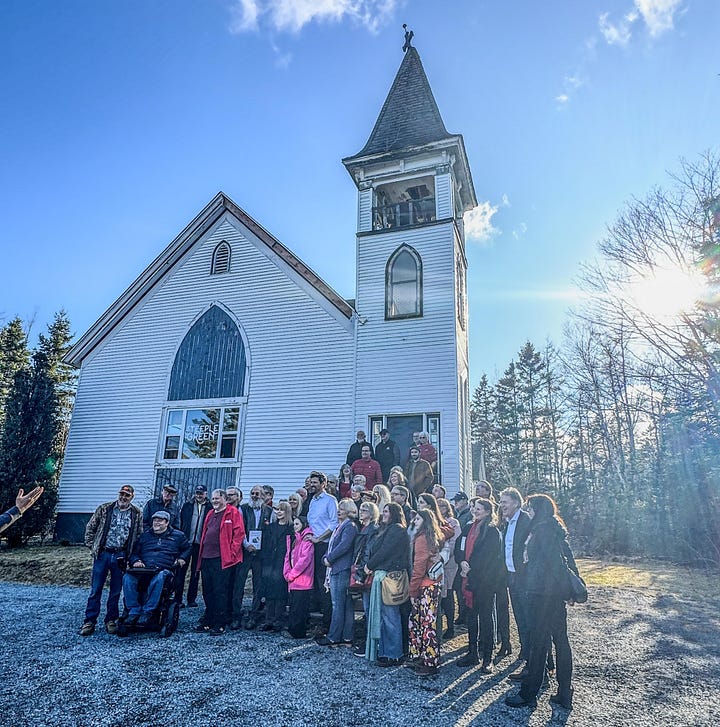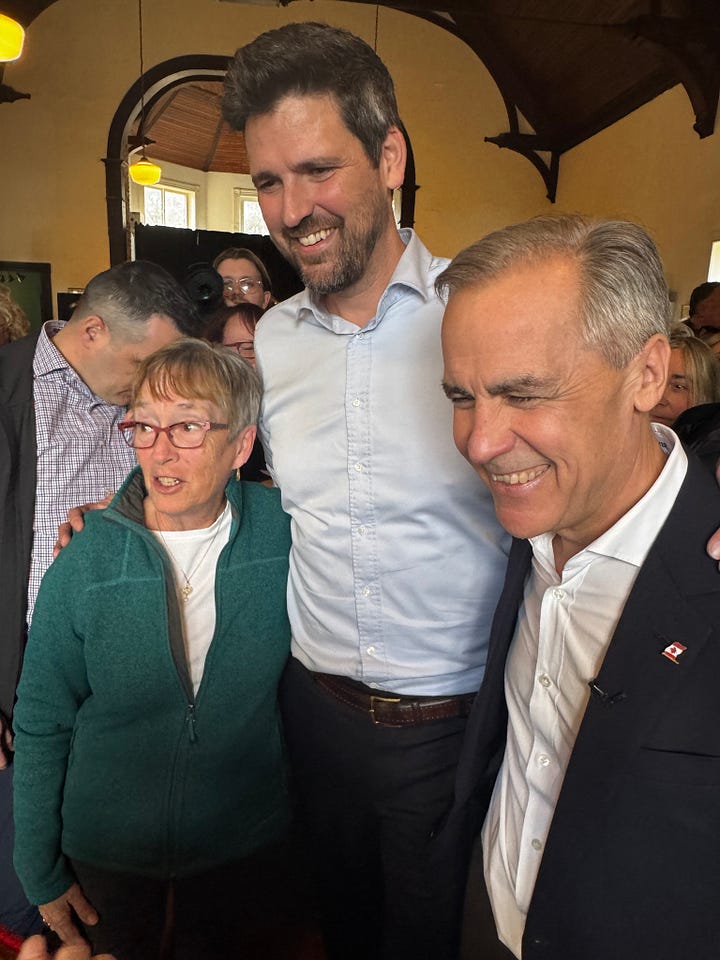HOW CAN AN UNELECTED PERSON BECOME PRIME MINISTER?
Provocative Subtitle: Canada has never elected any Prime Ministers. That's not how Canada works.




Yesterday was a GREAT day for Musquodoboit Harbour and therefore, of course, the world. Mark Carney and Sean Fraser had an unscheduled stop and met with a few of the good and decent people of the village who happened by.
Both men did more listening than talking. In some ways, it’s a village defined by strong matriarchal women - just the way I like it - and even if you are Prime Minister of Canada you kind of get the sense of your role of working in service pretty quick down there.
Welcome to how Canada works!
In Canada, you don’t vote for a Prime Minister. No one ever has. You vote for a Member of Parliament (MP) in your riding, which is a citizen representative for what we call a federal electoral district. Then, those 338 elected MPs (342 in the next election) form a Parliament - and they decide who becomes Prime Minister.
This is all laid out in our Constitution Act of 1867 - especially sections 9, 18, 49, and 50. And it's been used many, many times.
Section 9 says we must always have a Prime Minister. That’s not optional. If one quits or dies (Yes, I’m talking about Sir John Sparrow Thompson - the last PM from Halifax! He dropped dead at lunch with the Queen), Parliament must immediately choose someone else. No gap allowed.
SIDEBAR: You can visit his old downtown Halifax farm and read about him on a plaque in the park at the corner of Oxford and Almon.
Section 18 gives Parliament the power to choose who holds executive power — meaning the Prime Minister and Cabinet.
Section 49 says the Prime Minister needs to have the confidence of a majority of MPs. Period.
Section 50 says we get elections every five years (or sooner) to decide whether we like who they picked.
So: if a Prime Minister resigns - as has happened dozens of times - the party with the most seats simply chooses a new leader, and Parliament keeps rolling.
In short, the Prime Minister is the most important person in office in Canada… and if something happens to them, we just pick someone else and keep going.
How’s that for your Memento Morti for the day?! Memento Mori—(Latin: remember you will die)--is the ancient practice of reflection on our mortality that goes back to Socrates, who said that the proper practice of philosophy is about nothing else but keeping in mind that you will die and be dead.

This is how we’ve had Prime Ministers like Paul Martin, Kim Campbell, John Turner, Pierre Trudeau (the first time), Louis St. Laurent — all before they ever led a general election campaign.
And no, it’s not just a Canadian quirk. Britain does this (a lot!). Australia does this. And even the U.S. — remember when Gerald Ford became President after Nixon quit? Ford was never elected President or Vice President. Just the guy next in line who had the confidence of Congress.
So yes, an unelected person can become Prime Minister — as long as they can win the support of a majority of elected MPs. That’s how our parliamentary system ensures the government never stops working, even if the leader checks out early.
There’s a lot of fixation on parties. I think it’s important to remember that ‘a party’ is just a group of people who have come together to run for an election. It's not a monolithic race of people - it's not even a philosophy or ideology... or evil incarnate, as some people insist. 'Framing' or trying to put all people in a party in a box in order to discredit and defeat them is more a tool of the more quarrelsome nature of politics as sport.
In practice parties are more often defined by their critics than by their own policies which in Canada tend to be big-tent broad views designed to appeal to the most people in the centre of the political spectrum.
So instead of painting everyone in a party with the same brush, maybe we can try a little nuance: most people in most parties are good and decent Canadians who want the best for the country…
…they just disagree slightly on how fast to go, which route to take, and what to pack for the trip. No different really than a road trip with the family.
But the destination? A safer, freer, more prosperous, and progressive Canada! We mostly agree on that.
Don’t like it the current plan? That’s fine — the election’s coming soon. You get to vote for your MP, and that MP helps pick the next Prime Minister. It’s not chaos. It’s the Constitution.
And if you really want to change stuff, to get involved: join a party - doesn't matter which one, make it your own. Or start a new one - I think there are some openings coming up as there always is. Write policy, talk to neighbours, work to find good candidates for the task at hand - we need different kinds of representatives at different times. It’s the most direct way to be involved in democracy, be a healthy part of something larger, and work to shape the Canadian Dream.
TL;DR: Parliament selects the Prime Minister. It’s legal. It’s normal. It’s been happening since Confederation. And you still get to vote on it to, just not on Facebook every day at lunch.





Thanks for that bit of information. When people make arguments from a place of ignorance (like our PM has not been elected = is a dictator, etc) perhaps it is a teachable moment. I hope your breath is not wasted.